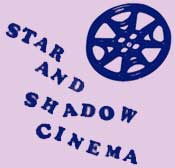The Milk of Sorrow (La Teta Asustada) [THIS EVENT IS CANCELLED]
Dir. Claudia Llosa, Spanish (English subtitles), 2009
-
Thu 30 September 2010 // 17:30
/ Cinema
Event sponsored and co-organised by the Americas Research Group, Newcastle University.
The film is inspired by the book Entre Prójimos by medical anthropologist Kimberly Theidon who will attend the screening and lead discussion afterwards.
TRAILER:
http://www.youtube.com/watch?v=IdOlD4s4Zb4
La Teta Asustada (English: The Milk of Sorrow, literally "The Frightened Teat") is a 2009 film by Peruvian director Claudia Llosa and co-produced by Peru and Spain.
The film stars Magaly Solier, and addresses the fears of abused women during Peru's recent history. It won the 2009 Golden Bear award and FIPRESCI prize at the Berlin International Film Festival, as well as the award for best movie in the 24 Festival Internacional de Cine de Guadalajara in Mexico. It was nominated for the 82nd Academy Awards for Best Foreign Language Picture.
CRITICAL REVIEWS:
The film received positive reviews, having a 100% certified "fresh" in Rotten Tomatoes. Peter Brunette, from the Hollywood Reporter, said "The film is gorgeously shot and contains a plethora of haunting images." and Boyd van Hoeij from Variety said that "Peruvian realities and Llosa's light magical realism mesh to create a vivid picture of a society and its problems." While some Peruvian critics gave the movie negative reviews, the plot and performance were praised by American and European critics.
BACKGROUND:
Between 1980 and 1992 Peru experienced a period of very hard violence, particularly in the Andean region, because of the uprising of the Maoist group Sendero Luminoso (Shining Path) and the actions of the paramilitary and state armed forces. By 1990 the conflict finally reached Lima, the capital city of Peru. Claudia Llosa refers in her film to the folk belief that the trauma experienced by women who were raped by members of security force was passed on to their children through the milk from their breasts. Thus, this period of violence continues to affect not only those who experienced it, but also the next generation.
The film is inspired by the book Entre Prójimos by Kimberly Theidon, Associate Professor at the Department of Anthropology at Harvard University and Director of Praxis, Institute for Social Justice. Llosa's work is a psychological as well as sociological approach to the 12 years of conflict, and is critical of the mass rapes allegedly used by the army as a strategy of war. In her book, Theidon documents a number of testimonies from women who were raped by as many as thirty men at a time, atrocities that often resulted in pregnancies. Theidon states that "when survivors of sexual violence speak about their experiences, they place a responsibility on their listeners to respond to what they have heard."[3] Llosa's film, too, is an attempt to respond to such testimonies.
ABOUT KIMBERLY THEIDON:
Dr. Kimberly Theidon is a medical anthropologist focusing on Latin America. Her research interests include critical theory applied to medicine, psychology and anthropology; gender studies; domestic, structural and political violence; theories and forms of subjectivity; human rights and international humanitarian law; truth commissions, transitional justice and reconciliation; the politics of post-war reparations; comparative peace processes; disarmament, demobilization and reintegration programs for ex-combatants; anthropology of development; and US counter-narcotics policy.
Dr. Theidon’s first book, Entre Prójimos: El conflicto armado interno y la política de la reconciliación en el Perú, draws upon extensive qualitative research on political violence, trauma, religious movements and transitional justice in post-war Peru. Her comparative community-based study of the micropolitics of reconciliation practiced at the communal and intercommunal levels identifies various factors that facilitate–or hinder–the reconstruction of social relationships and coexistence in the aftermath of fratricidal violence. Entre Prójimos was awarded the 2006 Premio Iberoamericano Book Award Honorable Mention for outstanding book in the social sciences by the Latin American Studies Association. She is currently conducting research in Colombia and Ecuador on two interrelated themes: the causes and consequences of populations in displacement, refuge and return, with a particular interest in the role of humanitarian organizations in zones of armed conflict; and the paramilitary demobilization process in Colombia.
Her research on the disarmament, demobilization and reintegration (DDR) program involves working not only with the ex-combatants but the communities to which they return. In this multi-sited research, Dr. Theidon has emphasized the reintegration phase, convinced that the unit of analysis and intervention must move beyond the demobilized combatants themselves to understand the complex dynamics of social relationships and local peace-building efforts.
